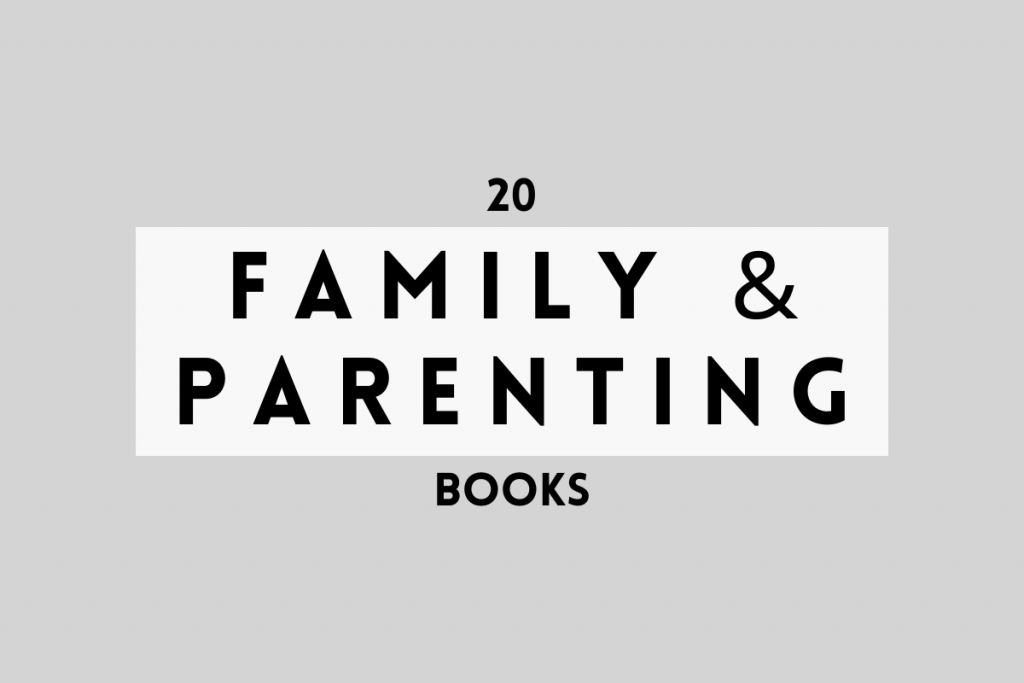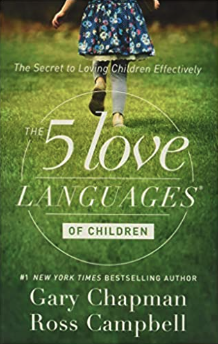20 Great Books about Family Dynamics and Parenting
Do you feel lost? Are you struggling to connect with your children? Are you overwhelmed with the powerful tasks of parenting?
Don’t worry. You are not alone.

Whether your family is going through a huge life transition, or your teen won’t listen to you, we’ve gathered 22 great books on family dynamics and parenting. Hopefully, at least one of these will provide some wisdom and help you out at home.
Check out our list of parenting books below!
1. The 5 Love Languages of Children
By Gary Chapman

The #1 New York Times bestselling The 5 Love Languages® has helped millions of couples learn the secret to building a love that lasts. Now discover how to speak your child’s love language in a way that he or she understands. Dr. Gary Chapman and Dr. Ross Campbell help you:
- Discover your child’s love language
- Assist your child in successful learning
- Use the love languages to correct and discipline more effectively
- Build a foundation of unconditional love for your child
2. No Drama Discipline
By Daniel J. Siegel

A breakfast bowl gets thrown across the kitchen, splattering milk and cereal all over the wall. Or one of your kids threatens a younger sibling. Or you get a call from the headteacher’s office for the third time this month. What do you do?
No-Drama Discipline provides an effective, compassionate road map for dealing with such tantrums, tensions, and tears – without causing a scene. Based on recent discoveries about the brain that give us deep insights into the children we care for, what they need, and how to discipline them in ways that foster optimal development, this book offers a ‘relational’ approach that builds on children’s innate desire to please their parents and get along well with others.
3. The Explosive Child
By Ross Greene

What’s an explosive child? A child who responds to routine problems with extreme frustration—crying, screaming, swearing, kicking, hitting, biting, spitting, destroying property, and worse. A child whose frequent, severe outbursts leave his or her parents feeling frustrated, scared, worried, and desperate for help. Most of these parents have tried everything-reasoning, explaining, punishing, sticker charts, therapy, medication—but to no avail. They can’t figure out why their child acts the way he or she does; they wonder why the strategies that work for other kids don’t work for theirs; and they don’t know what to do instead.
Dr. Ross Greene, a distinguished clinician and pioneer in the treatment of kids with social, emotional, and behavioral challenges, has worked with thousands of explosive children, and he has good news: these kids aren’t attention-seeking, manipulative, or unmotivated, and their parents aren’t passive, permissive pushovers. Rather, explosive kids are lacking some crucial skills in the domains of flexibility/adaptability, frustration tolerance, and problem solving, and they require a different approach to parenting.
4. Permission to Feel
By Marc Brackett

Marc Brackett is a professor in Yale University’s Child Study Center and founding director of the Yale Center for Emotional Intelligence. In his 25 years as an emotion scientist, he has developed a remarkably effective plan to improve the lives of children and adults – a blueprint for understanding our emotions and using them wisely so that they help, rather than hinder, our success and well-being. The core of his approach is a legacy from his childhood, from an astute uncle who gave him permission to feel. He was the first adult who managed to see Marc, listen to him, and recognize the suffering, bullying, and abuse he’d endured. And that was the beginning of Marc’s awareness that what he was going through was temporary. He wasn’t alone, he wasn’t stuck on a timeline, and he wasn’t “wrong” to feel scared, isolated, and angry. Now, best of all, he could do something about it.
5. The Whole-Brain Child
By Daniel J. Siegel

In this pioneering, practical book, Daniel J. Siegel, neuropsychiatrist and author of the bestselling Mindsight, and parenting expert Tina Payne Bryson offer a revolutionary approach to child rearing with twelve key strategies that foster healthy brain development, leading to calmer, happier children. The authors explain—and make accessible—the new science of how a child’s brain is wired and how it matures. The “upstairs brain,” which makes decisions and balances emotions, is under construction until the mid-twenties. And especially in young children, the right brain and its emotions tend to rule over the logic of the left brain. No wonder kids throw tantrums, fight, or sulk in silence. By applying these discoveries to everyday parenting, you can turn any outburst, argument, or fear into a chance to integrate your child’s brain and foster vital growth.
Complete with age-appropriate strategies for dealing with day-to-day struggles and illustrations that will help you explain these concepts to your child, The Whole-Brain Child shows you how to cultivate healthy emotional and intellectual development so that your children can lead balanced, meaningful, and connected lives.
6. Shepherding a Child’s Heart
By Tedd Tripp
7. Ignore It
By Catherine Pearlman
8. Strong Mothers, Strong Sons
By Meg Meeker
9. Wild Things: The Art of Nurturing Boys
By Stephen James
10. Parenting: From Surviving to Thriving
By Charles R. Swindoll
11. Parenting Teens with Love and Logic
By Jim Fay
12. The Teenage Brain
By Frances Jensen
13. Beyond Consequences Logic and Control
By Heather T. Forbes
14. Brainstorm
By Daniel J. Siegel
15. How to Talk So Teens Will Listen and Listen So Teens Will Talk
By Adele Faber
16. Parenting From the Inside Out
By Daniel J. Siegel
17. Smart but Scattered
By Peg Dawson
18. Transforming the Difficult Child
By Howard Glasser
19. Screen-smart Parenting
By Jodi Gold
20. The Smart Stepfamily
By Ron L. Deal

